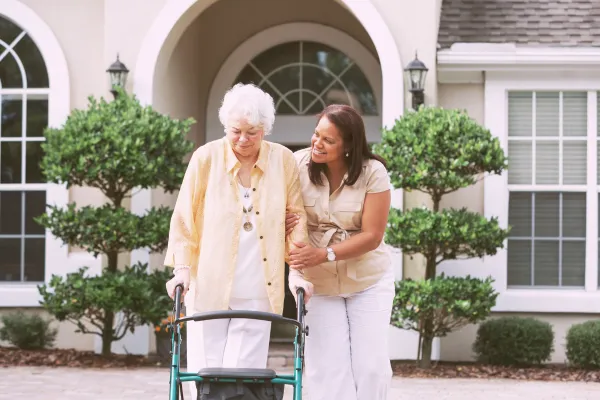
What Closing the Care Gap Actually Means — And Why Most Families Never Get There
Most caregivers aren’t failing.
They’re just patching holes in a system that never gave them a plan.
If you’ve ever felt like you’re constantly reacting to the next fire—whether it’s a wandering episode, a sleepless night, or another medication change—you’re not alone. What you’re feeling isn’t personal failure. It’s a reflection of a much bigger issue: the gap between a dementia diagnosis and a real-world care plan that helps families feel confident and in control.
What is the "Care Gap"?
The care gap refers to the vast space between the moment a diagnosis is given and the moment a family feels prepared to handle what comes next. Most families are handed a diagnosis and maybe a pamphlet—but very few walk away with clarity, strategy, or support.
That gap shows up as:
Endless Googling and second-guessing
Overwhelm from unpredictable behaviors
Family tension and emotional burnout
A constant guilt feeling of "I must be doing this wrong"
And it's no wonder. The healthcare system is designed to treat symptoms—not to support families in the day-to-day reality of caregiving.
Why Most Families Never Close It
Most families never get the support they need because they’re trying to manage dementia care the way you might handle a leaky roof—patching one problem, then the next. But dementia isn't a single leak. It's an ongoing storm.
So they jump from advice to advice, tip to tip, reacting to whatever comes up next without a bigger picture.
Here's the truth: without a framework, you're always going to feel like you're behind.
What Closing the Gap Actually Looks Like
Closing the care gap means shifting from reaction to strategy. It means having a framework that not only helps you understand what’s happening now—but prepares you for what’s coming next.
That’s where the COMPASS Framework comes in.
The very first principle is Clarity. Because without it, nothing else sticks.
When you have clarity:
You understand what stage your loved one is really in
You stop being surprised by every behavior shift
You know what to watch for, what to ask at appointments, and what matters most right now
Clarity is what turns chaos into calm.
And it’s only the beginning.
The Difference Between Advice and a Framework
If you’re tired of whiteboard tips and behavior charts that don’t work, you’re not alone.
Most of what’s out there is advice — often well-meaning, but disconnected from your full picture.
A framework, on the other hand, takes into account:
Medical realities
Family dynamics
Your loved one’s history, personal story and values
Your capacity as a caregiver
That’s the level of depth required to actually make dementia care feel manageable.
You Don't Have to Figure This Out Alone
The good news? You don’t have to keep guessing.
Inside the Dementia Caregivers Academy membership, I teach the full COMPASS framework—starting with clarity and building toward confidence. You’ll learn how to stop reacting, start planning, and feel more in control of your care journey.
Because dementia care doesn’t have to be a guessing game.
It can be a path.
Ready to close the gap?
Let’s walk the path together.
I’m here sharing for you, while you are caring for them.
—Laura
PS. You can also watch this video on YouTube:
🎥 Watch it now

🫂 Join the Conversation:
Need a community where you can ask for help and get real support?
Join my FREE Caregiver Support Group here
👉 Dementia Caregivers Success & Support Network.
📚 Resources to Support You:
Grab your Medical Assistance Planner and get organized.
The Caregiver Gap Report — a free guide that breaks down what no one told you, and how to get the support you actually need.
👉 Download The Caregiver Gap Report right nowExplore the Dementia Caregivers Academy Course for in-depth strategies and support.
Check out our other free Resources here.
dementia care plan, caregiver overwhelm, dementia care framework, dementia caregiver support, closing the care gap
